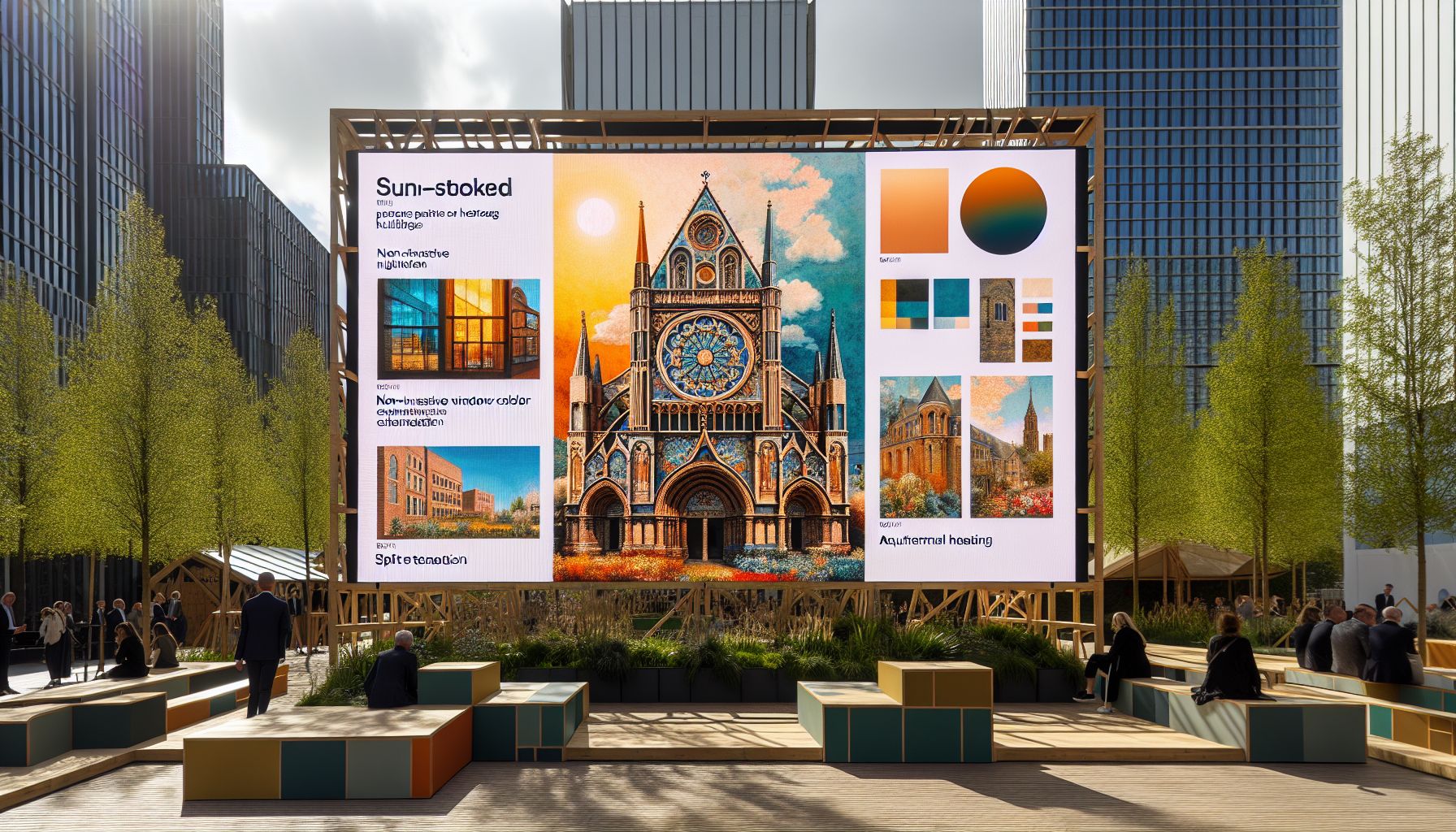Dutch Design Week Showcases Eco-Friendly Innovations for Heritage Buildings

Eindhoven, Monday, 14 October 2024.
Dutch Design Week 2024 highlights sustainable solutions for historic structures, featuring innovative projects like non-invasive window insulation and aquathermal heating for monuments. The event bridges the gap between preserving architectural heritage and embracing future-proof technologies.
Innovative Solutions for Historic Preservation
During the Dutch Design Week 2024, held from October 19 to 27 in Eindhoven, a significant focus was placed on sustainable solutions for historic buildings. The Rijksdienst voor het Cultureel Erfgoed (RCE) showcased eight cutting-edge innovations at the DOMUSDELA chapel. These projects addressed challenges such as insulating windows without physical intervention and utilizing aquathermie for heating monuments. This initiative underscores a growing trend towards integrating modern technology with cultural preservation, ensuring that historical structures remain relevant and functional in an eco-conscious future[1].
Aquathermie: A Modern Approach to Heating
Aquathermie, the process of using water as a heat source, was prominently featured as a sustainable heating solution for monuments. This innovative method draws on the natural thermal properties of water, offering an eco-friendly alternative to traditional heating systems. By harnessing aquathermie, historic buildings can reduce their carbon footprint while maintaining structural integrity. The RCE’s exploration of this technology demonstrates a commitment to environmental responsibility and heritage conservation, presenting a viable solution for other heritage sites worldwide[1].
Non-Invasive Insulation Techniques
Another highlight of the event was the presentation of non-invasive insulation techniques for historic windows. This approach allows for the preservation of architectural aesthetics while enhancing energy efficiency. By employing advanced materials and methods, these solutions minimize heat loss without altering the original structure. This innovation is particularly crucial for heritage buildings where maintaining the original appearance is as important as improving energy performance[1].
A Broader Perspective on Sustainability
Beyond individual projects, Dutch Design Week 2024 served as a platform for broader discussions on sustainability in design. With over 2,600 designers participating, the event attracted more than 355,000 visitors, emphasizing the global interest in sustainable practices[2]. Among the various exhibits, Shigeki Yamamoto’s ‘Play Memory Structure’ coffee tables, made from reused toys and roadside finds, exemplified the creative reuse of materials. This aligns with the event’s theme of promoting sustainable design practices that are both innovative and respectful of the environment[3].
Conclusion: Paving the Way for Future Innovations
Dutch Design Week 2024 effectively bridged the gap between historical preservation and modern technology, setting a precedent for future innovations in the field. By showcasing projects that combine sustainability with heritage conservation, the event highlighted the potential for creative solutions to global challenges like climate change and pollution. As the world continues to seek ways to reduce environmental impact, events like Dutch Design Week provide crucial inspiration and motivation for both designers and policymakers[1][2].

